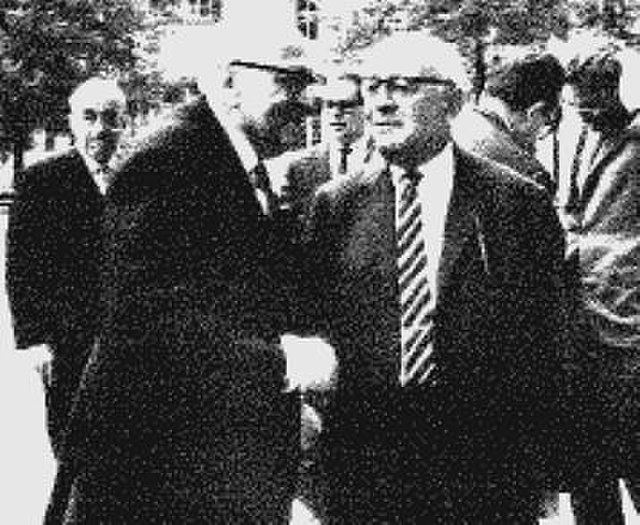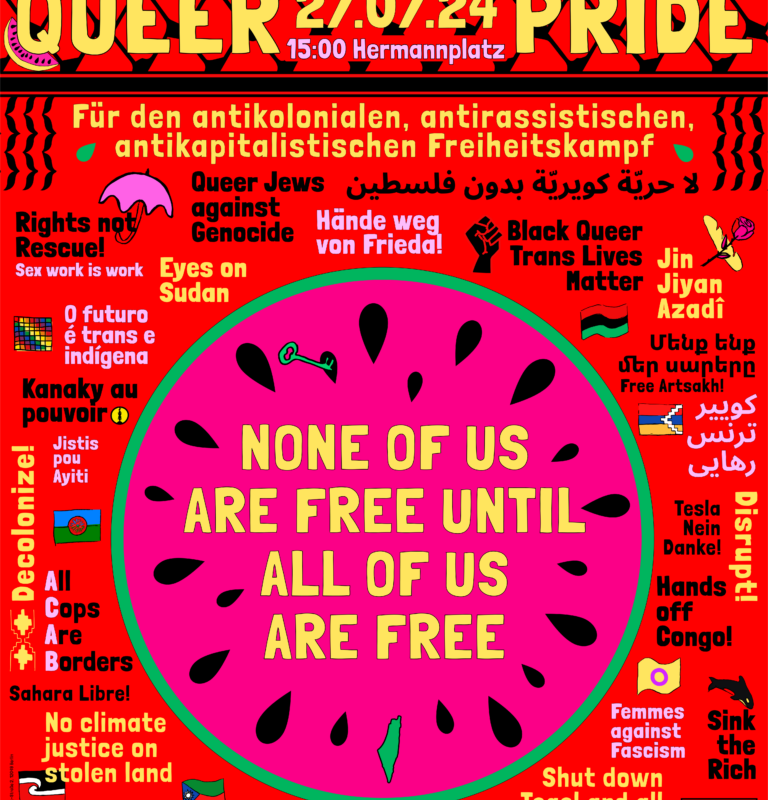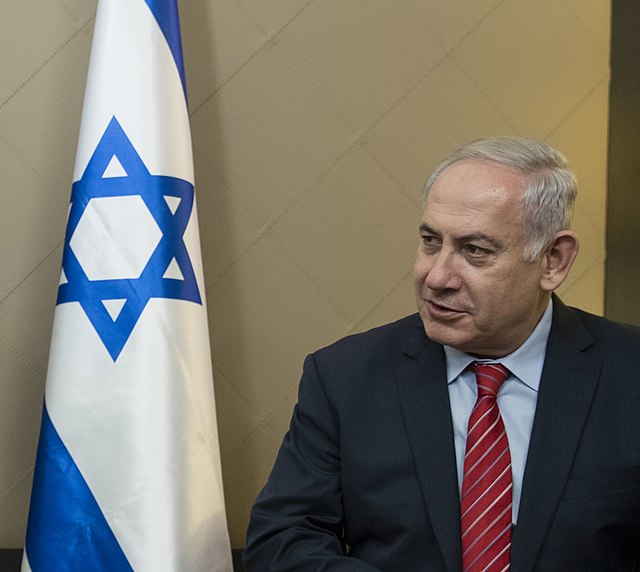Hi Udi! Most people who read theleftberlin will know who you are. But for our new readers, would you introduce yourself?
Thank you again for having me here. It’s always a pleasure to talk to you. My name is Udi Raz, I am a board member of an organization called the Jewish Voice for a Just Peace in the Middle East, or in German, Jüdische Stimme für gerechten Frieden in Nahost.
And the Jüdische Stimme is about to celebrate its 20th birthday?
Well, recent events underline that there is no reason to celebrate. The fact that our organization has existed for 20 years is a sign of a failure of humanity. We, as an organization, insist that we should become irrelevant, and as soon as possible. Unfortunately, we are still needed.
But we want to take this chance to come together as members of the Jewish Voice, and to invite other Jews and non-Jews to join us to reflect, to connect, and just be together in these very difficult times. We can offer support, a safe space for encounters for Israelis, Jews, Palestinians, Muslims, Christians, you name it. Everybody who is affected directly or indirectly by European ideologies of racial supremacy, and who lives in Berlin, is welcome to join us.
So this anniversary is more than just a cultural event, it’s a political event as well.
It’s political in the sense that saying that Palestinian lives matter is political nowadays.
The Jüdische Stimme was formed in Germany in 2003. What inspired its formation, and why then?
This was around the time of the second intifada. Our founding members were already organised in Palestinian-Jewish sociopolitical solidarity circles, such as the so-called AK Nahost. In Germany back then, Palestinian voices were ignored by policymakers. Like nowadays, Germany’s political elite were willing to listen only to Jewish voices, as such, when talking about the living realities in Palestine*Israel. This is the political environment that made the formation of the Jüdische Stimme a necessity. In creating our group, solidarity between Palestinians and Jews finally gained some visibility within the German cultural and political context. Solidarity that underlines the real potential of a just peace for people who live in the same region. As a symbolic gesture, the Jüdische Stimme was founded on the 65th anniversary of the November pogroms of 1938. This decision also further made real the imperative we inherited from our parents and grandparents, to learn the lessons of racially motivated state persecution, actions which eventually led to the Holocaust. Our ancestors taught us the meaning of “Never Again,” and we have listened carefully.
Do you think there is a specific German-Jewish experience?
Yes. Precisely because this term is so highly politicized, being a Jew in Germany is by itself a statement. For many years, I refused to identify as a Jew, because I grew up in a secular Zionist habitus. It was clear that being a Jew, while living in Palestine*Israel, meant being part of a certain nation. And thus the categories “Jew” and “Israeli” overlapped in this context. When I first moved to Germany, I felt more comfortable with the idea of understanding myself as Israeli, while distancing myself from my Jewishness. A category which I perceived as too broad, since it did not reflect my specific experience as a Jewish person living in Palestine*Israel.
For the longest time, I believed that you can really be an objective person in this world, that you can be without race, without gender, without social status, that everyone can be normal and can make their own choices. And it took a long time to understand that I have had certain privileges that allowed me to understand myself as “normal.” I was made “normal” by a discourse that “de-normalized” and delegitimized anything that was not like me.
And yet, Jews in Germany are expected by White Germans to behave in a certain way.
That’s the thing. As soon as I identified as a Jew in different contexts in German public sphere, I was reminded again and again that it doesn’t matter what I think or feel. What matters is what those who control the discourse think about me as a Jewish person. What they project onto me is what matters to them.
What’s the relationship between the Jüdische Stimme and the international organization Jewish Voice for Peace?
We work closely with individuals on the international level, and have a good connection with them. But our work is executed and decided on purely by board members who are all based in Germany. It’s important for us to be independent from the bigger organizations because the context here is so specific.
What is the specific role of Jews in the Palestinian struggle?
The decolonization process of Palestine is also the decolonization process of Judaism from Zionism.
What would you like to see happen in the Middle East, instead of what we are seeing now?
I wish to see a place where everybody can live as equals before the law. A system that is established through democratic processes, by all the people who will live under it. I think this is the only way to continue living together in this region. We must have a place to which as many individuals and communities who share it can affiliate. This place can have more than one name.
I think queerness is one way out. It is an invitation to think critically about a set of categories, categories that are given to us and prescribe essential differences between us. We must insist that there is always another way.
And how do we move from where we are now to where we want to be?
The biggest problem is the idea of Germany. What is it about Germany that needs Muslims and Jews to understand themselves as enemies? It is by virtue of the idea of Germany, that German politicians claim that Jews should not think of Palestinians as potential neighbours and siblings. Why is it, when Jews speak up about Palestinians as being their equals, Germany’s political elite accuses us not only of being not Jewish enough but even of being a threat, both to Jews – to ourselves! – and also to Germany?
To come back to the start of our chat, if our readers would like to meet you and talk more about the issues raised today, they can come to the Jüdische Stimme event on November 4?
Definitely. This event will be a good opportunity for all of us to connect and learn more about the work of Jüdische Stimme, and explore how to collaborate on future work – both Jews and non-Jews.
Twenty Years of Jüdische Stimme für Gerechten Frieden in Nahost
Saturday, October 4 from 18:00. Oyoun, Lucy-Lameck-Straße 32. Tickets here.
Jüdische Stimme is also one of the organisations calling for a mass demo, Free Palestine Will Not Be Cancelled! on Saturday, October 4 at 14:00 at Alexanderplatz. If you would like to take part with other international activists, we are meeting in front of the Marx Engels Forum at 13:45.



